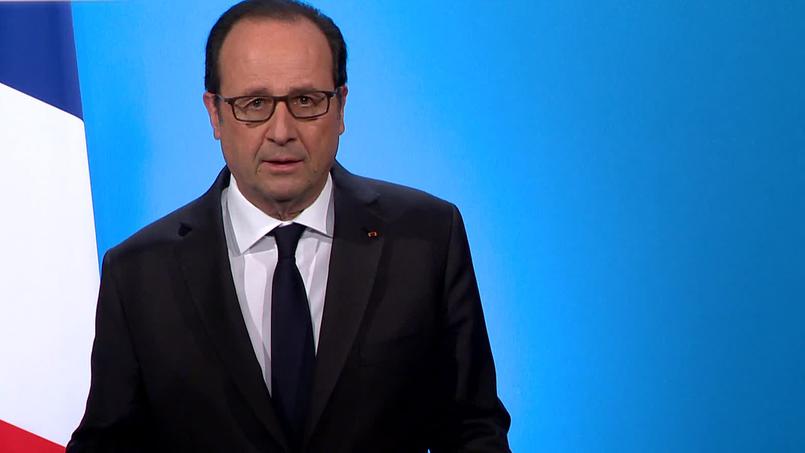
François Hollande’s decision not to seek reelection should have been a no-brainer. He’s obviously a drag on his party, the Parti socialiste, and he should have cleared the path for potential successors months ago, given his massive unpopularity. ![]()
Before taking a look at what this means for the 2017 presidential contest, it’s worth noting how spectacular the last two weeks of French politics have been — two of the seven presidents of the Fifth Republic have now been vanquished altogether, their careers ended. Au revoir, Hollande. Au revoir, Nicolas Sarkozy.
* * * * *
RELATED: The nightmare French election scenario
no one is talking about
* * * * *
Looking to the future, Hollande’s decision now clears the way for his prime minister, the once very popular (now less so) Manuel Valls, a 54-year old, Spanish-born official who previously served as interior minister with a reputation as a tough-guy reformer on the center-right of the Socialists. Hollande’s decision gives Valls the green light to proceed without adding to the considerable bad blood between France’s president and prime minister.
For now, the race looks like it will pit Valls, as the centrist, against Arnaud Montebourg, a former economy minister of the left of the Socialist Party. Montebourg is something of a protectionist who tried, as economy minister, to prevent foreign takeovers of businesses in certain key industries — to widespread disgust from businessmen in the United States and the rest of Europe.
That binary race looks very close. Polls show a runoff as essentially a tossup between the two. But the race may not shape up that way, especially as Socialist voters now take a fresh look at the field. Voters will not choose the Socialist nominee until January 22 and January 29, and that’s plenty of time for an upset (and recall how quickly François Fillon came to dominate the center-right nomination contest earlier this month).
Benoît Hamon, in particular, is worth watching. A one-time protege of Montebourg’s, the 49-year-old former education minister left the Hollande administration alongside Montebourg. Since then, however, he’s emerging as something of a ‘fresh-faced Montebourg without the baggage,’ much to the consternation of Montebourg and his allies.
Whereas you might have once dismissed Gérard Filoche a 70 year-old labor organizer and self-proclaimed communist, he has potential to ‘Corbynize’ the race as a blunt man of the hard left.
Marie-Noëlle Lienemann, a 65-year-old French senator to the left of Hollande, is a former housing minister with a relatively low profile who is also contesting the race. Again, if voters feel that the binary choice of Valls and Montebourg leaves them with poor options, it’s possible they will take a look at someone like Lienemann.
There could be other wild cards.
Former economy minister Emmanuel Macron, a 38-year-old wunderkind and former investment banker, who replaced Montebourg in 2014, is already running as an independent in the 2017 race. There’s a chance (however unlikely) that he could run for the Socialist nomination instead. Potentially, the same could be true of far-leftist firebrand Jean-Luc Mélenchon.
Other Socialists — the usual suspects — may reconsider their decisions. Where is Dominique Strauss-Kahn? He’s only 67 years old. Newly rehabilitated environmental minister Ségolène Royal, the 2007 nominee, remains popular, but has she been through enough? She’s only 63 years old. Paris mayor Anne Hidalgo could also be a fresh face. Even former justice minister Christiane Taubira could make a run. Martine Aubry, the conscience of the old French left and the author of the 35-hour work week, is only 66 years old. Laurent Fabius, the highly regarded foreign minister and a long-ago prime minister in the 1980s, is just 70 years old.
Just as the race to determine the nominee of Les Républicains was influenced by outsiders, so too could the Socialist primaries. Mélenchon will want Valls or another centrist to win, because it will be easier for him to consolidate the French left in the first-round vote next April. Fillon, however, will want Montebourg or Hamon to win, because Valls draws from the same base of centrist voters for which Fillon, Macron and possibly four-time contender and moderate François Bayrou will also compete.
It’s still very unlikely that the Socialist nominee will win the presidency (or even make it to the May runoff) in 2017. But Hollande’s decision now gives the Socialists a chance — just a chance — of not falling to single digits in the race, of not finishing as low as fifth place, and of maintaining at least some minimal presence in the National Assembly in next year’s June parliamentary elections.
Usually I never comment on blogs but your article is so convincing that I never stop myself to say something about it. You’re doing a great job,Keep it up. Thanks for the What Hollande's decision not to stand for reelection means | Suffragio entry, suffragio.org webmaster! For more information on binary options canada refer to Gabriel(%URL%) website and derive more information benefit.